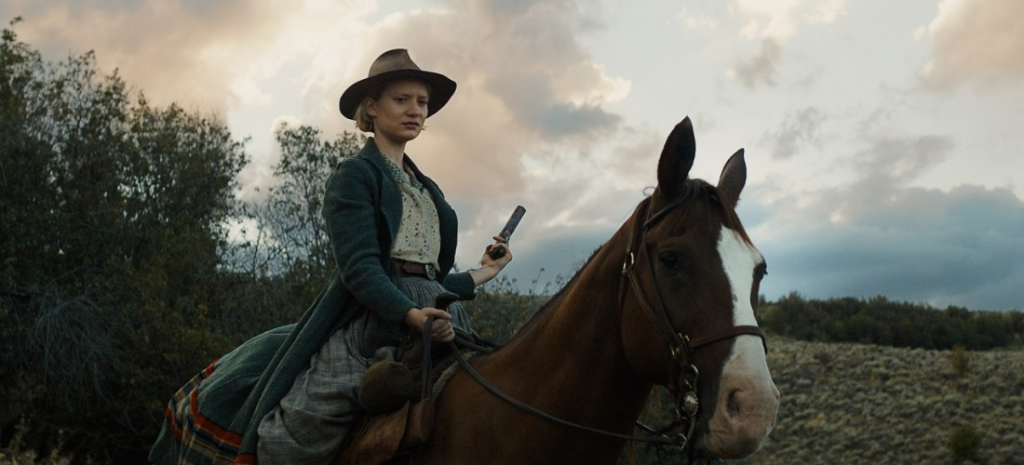
The western has long been a prism through which we inspect the changing American psyche. White hats and black hats battle on the open range, showing us how far (or often how little) we’ve progressed since. Times may change, and the westerns may change with them, but the form and its function have never really gone away. David and Nathan Zellner’s follow-up to their superb Kumiko the Treasure Hunter finds the pair tackling issues of masculinity and entitlement that have been around forever.
Arriving at this particular moment, Damsel feels firmly rooted in the age of the internet.
We find ourselves in a time when serious discussions about equality and diversity are bubbling up to the surface in a significant way. The #MeToo movement is taking serial abusers to task for their actions. The specter of Men’s Rights and the toxic masculinity it breeds looms large on the internet, to say nothing of its effects in the real world. This is the world that Damsel seeks to explore.
As the film opens we meet Parson Henry (David Zellner), a man who has lost everything and hopes to start fresh out west by adopting the persona of a preacher. He’s hired by Samuel Alabaster (Robert Pattinson) to preside over Samuel’s marriage to his beloved Penelope (Mia Wasikowska). With a miniature horse named Butterscotch in tow, the two men trek out into the wilderness to Penelope’s home, where the truth of their mission soon becomes clear. As it turns out, Samuel not only intends to marry Penelope, but first he must rescue her from the man to whom she is currently married.

#TeamButterscotch
Samuel wanders into a Western stereotype of a town with a Winchester rifle on one shoulder and a guitar on the other, all looking fresh off the assembly line. This pristine stranger does not belong in this dingy town. Pattinson plays Samuel with a gleam in his eye and a crooked smile familiar to anyone who’s ever tried to fake it til they make it. Even his last name, Alabaster, tells us everything we need to know about him. Deep down, this man is soft, not that he wants us to know that. His plan to rescue Penelope is equally pitiful, as he constructs a diagram of the area using sticks, a couple bullets and a horse turd. If Samuel seems ill-equipped for this kind of story, well, there is a very good reason for that.
Somewhere around Damsel’s halfway point, the Zellners reveal their hand and the film’s real story kicks into gear. As the film’s eponymous damsel, Penelope is in no need of rescuing, wooing or anything of the sort. She is perfectly capable of taking care of herself, thank you very much, and is something of an artist when it comes to the use of dynamite. Women are much more adept than the men in their lives give them credit for, the film suggests, and Mia Wasikowska gives Penelope all the piss and vinegar of a woman fed up with these men trying to take control of her life.

NOT PICTURED: The man presently trying to take control of her life.
Much like their previous feature, the Zellners take a classic American tale and warp it into a statement on the current state of things. With Kumiko, they took the Coens’ crime drama Fargo and spun it into a tale about the corrupting allure of pop culture. Damsel finds them on somewhat less meta-footing, taking your typical Hollywood western and shoving its gender dynamics back the other direction. John Wayne may set out to save the girl, but this film finds its thematic depth in asking whether or not the girl even wanted to be saved in the first place.
Casting himself as one of the film’s leads, David Zellner must recognize his role in this dynamic. His Parson Henry is a man set adrift, desperate to find his place in the order of things. He’s merely along for the ride, watching helplessly as one man after another tries to win over a woman who very clearly is not interested in being won. And for as much time as we spend watching Penelope fend off a barrage of unwanted and occasionally violent advances, we spend just as much time watching Henry survey the situation. In the end, Damsel seems to say, the only thing a good man can do against toxic masculinity is observe it and do the opposite.
